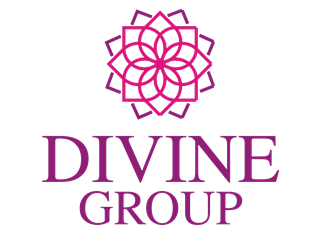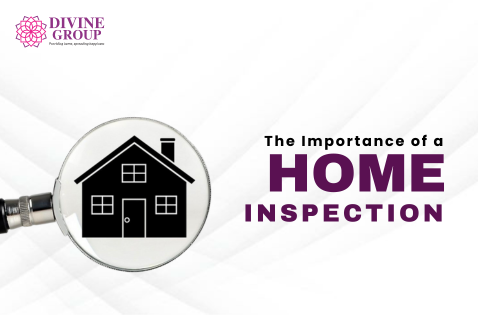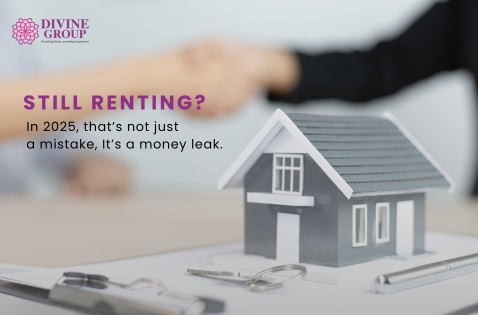
August 10, 2024
Understanding The Role Of Down Payment In Home Loans
Buying a home is a significant financial commitment and a dream for many. While home loans make this dream attainable, understanding the down payment’s role is crucial in navigating the real estate market effectively.
In this blog, we’ll break down what a down payment is, its importance, and how it impacts your home loan. We’ll also introduce you to OM Divine, a leading real estate developer in the Tri-City area, and how they can help you find your ideal home.
What Is a Down Payment?
A down payment is the initial amount you pay out of pocket when purchasing a property. It is not financed through your home loan but is instead paid directly to the seller or builder. For instance, if you’re buying a 3 BHK flat in Kharar priced at ₹60 lakhs, and you put down ₹15 lakhs, you would finance the remaining ₹45 lakhs through a home loan.
This initial investment is crucial as it demonstrates your financial commitment and reduces the loan amount you need. Lower loan amounts translate to lower monthly EMIs and reduced overall interest costs.
Is a Down Payment Important?
- Reduces Loan Amount:
One of the primary functions of a down payment is to decrease the amount you need to borrow. By making a substantial down payment, you lower your principal loan amount, which means smaller EMIs and less interest paid over time. For example, if you’re eyeing a 2 BHK flat in Kharar worth ₹50 lakhs and make a down payment of ₹10 lakhs, you only need a loan of ₹40 lakhs.
- Influences Interest Rates:
A larger down payment often results in better interest rates. Lenders view a significant down payment as a sign of reduced risk. Consequently, they might offer you more favorable terms, including lower interest rates. For instance, making a down payment of 20% on a 2 BHK flat in Mohali might secure you a better interest rate compared to a smaller down payment.
- Affects Loan Approval:
A substantial down payment improves your chances of loan approval. It shows lenders that you have the financial stability and commitment needed to manage a home loan. For example, if you’re purchasing a property in Sector 115 Mohali and making a sizeable down payment, it will likely enhance your loan application’s approval chances.
Minimum Down Payment Requirements
In India, the Reserve Bank of India (RBI) and the National Housing Bank (NHB) have set guidelines for the LoantoValue (LTV) ratio, which determines the maximum amount you can borrow compared to the property’s value:
- Properties below ₹30 lakhs: Maximum 90% LTV, requiring at least a 10% down payment.
- Properties between ₹30 lakhs and ₹75 lakhs: Maximum 80% LTV, necessitating a 20% down payment.
- Properties above ₹75 lakhs: Maximum 75% LTV, requiring a 25% down payment.
For example, if you’re buying a 1 BHK flat in Kharar worth ₹40 lakhs, you’ll need to make a down payment of at least ₹8 lakhs (20% of ₹40 lakhs) and finance the remaining ₹32 lakhs through a loan.
Benefits of a Larger Down Payment
- Lower Monthly Payments:
A larger down payment reduces your loan amount, which in turn lowers your monthly EMI payments. This can make your budget more manageable. For example, making a larger down payment on a property in Kharar will result in lower monthly payments compared to a smaller down payment.
- Reduced Interest Costs:
By borrowing less, you pay less interest over the life of the loan. This can lead to substantial savings. For instance, if you buy a flat in Kharar and make a larger down payment, the total interest you pay on the loan will be lower compared to a scenario with a smaller down payment.
- Faster Loan Repayment:
With a smaller loan amount, you can repay your loan faster, reducing your financial burden and freeing up your finances sooner. This is particularly beneficial if you’re planning to purchase a property in a growing area like Kharar, where property values is increasing over time.
Managing and Saving for a Down Payment
- Start Early:
Start saving as soon as you can for your down payment. Setting aside a fixed amount each month can help you accumulate the necessary funds. Consider opening a dedicated savings account to track your progress.
- Budget Wisely:
Create a budget to identify areas where you can cut back on expenses and allocate those savings toward your down payment. This might involve reducing non-essential spending or finding additional sources of income.
- Explore Assistance Programs:
Investigate government schemes or assistance programs that can help with down payment costs. Some programs offer subsidies or grants to first-time home buyers, which can ease the financial burden.
- Use Financial Tools:
Utilize online calculators to understand how different down payment amounts impact your loan terms and payments. This can help you make informed decisions and plan your finances effectively.
OM Divine: Your Partner in Home Ownership
At OM Divine, we understand that finding the perfect home involves more than just securing a loan. With over 16 years of experience in the real estate sector, we are committed to transforming your dreams into reality. Whether you’re looking for a 2 BHK flat in Kharar or a 3 BHK villa, our diverse portfolio of residential and commercial projects is designed to meet your needs.
Conclusion
Understanding the role of a down payment is crucial in managing your home loan and overall financial health. A well-planned down payment can reduce your loan amount, lower your interest rates, and make your monthly payments more manageable.
As you embark on your journey to homeownership, consider partnering with OM Divine. With our extensive experience and dedication to quality, we are here to help you find the home of your dreams and make your real estate journey smooth and successful.
Choose your dream flat and plan your down payment today with Om Divine World.




